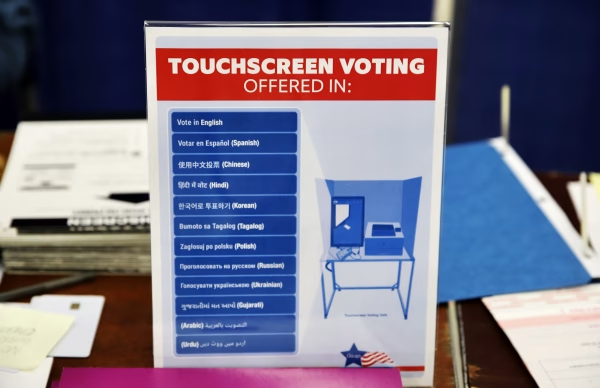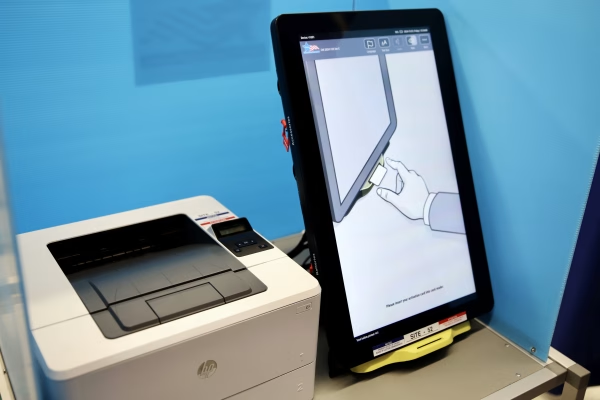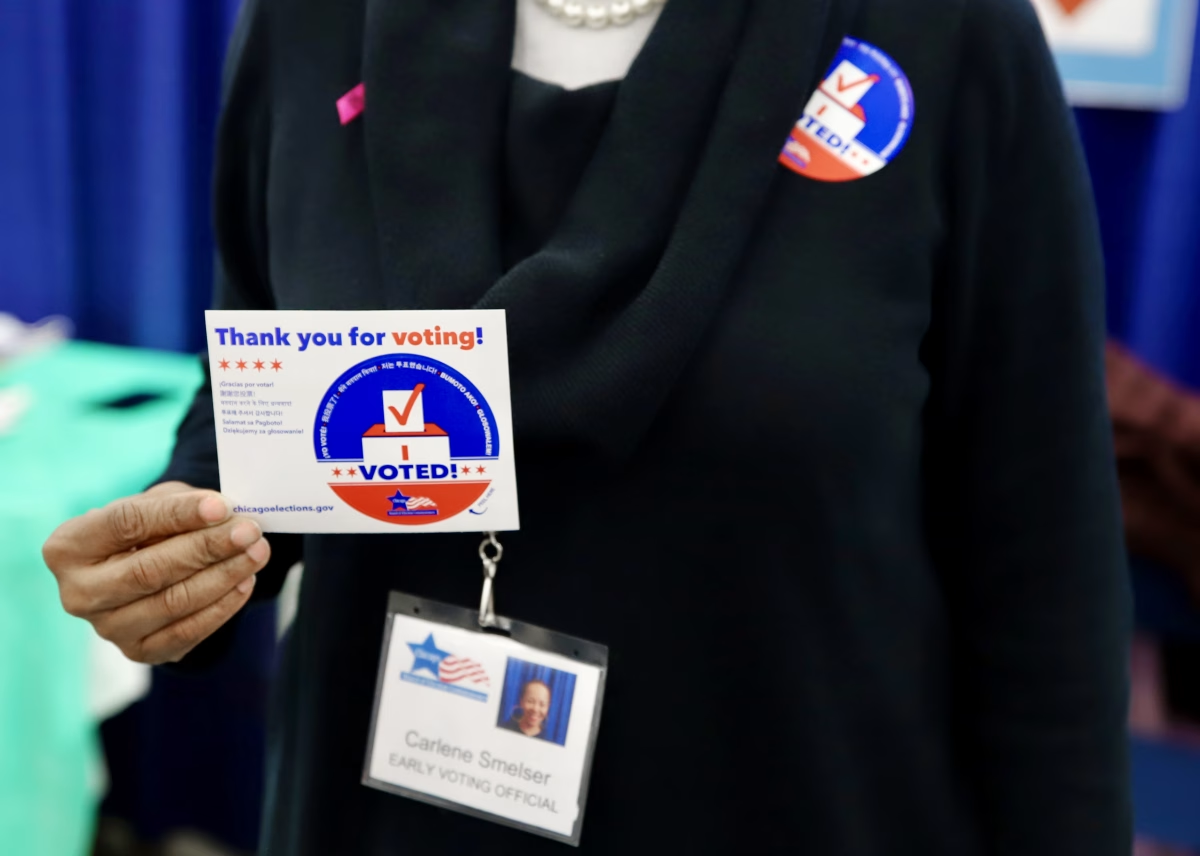Voters have begun casting their ballots in the 2024 presidential election, but behind the ballot box, successful elections rely on more than voter turnout. Significant coordination is required from election officials and community leaders to ensure the voting process runs smoothly.
Although there’s always a need for poll workers, finding those who are bilingual is often more challenging. This year, however, Chicago has seen its highest number of early-voting bilingual election judges in history, according to Max Bever, a spokesman for the Chicago Board of Elections. He said that’s partially because recruitment is easier during presidential elections.
“It’s not necessarily the most glamorous job,” Bever said. “It’s certainly not the highest-paying, and you’re not compensated extra for your bilingual skills.”
Before Election Day, voters in Chicago who need language assistance can find bilingual poll workers at 32 early voting sites and across the more than 600 precincts, including a location at 1150 W. Fullerton with assistance in Spanish and Polish.
Each precinct is also equipped with touchscreen voting machines and audio ballots in 11 languages besides English. These languages include Spanish, Mandarin Chinese, Hindi, Korean, Tagalog, Polish, Gujarati, Urdu, Ukrainian, Arabic and Russian.

Chicago’s Board of Elections also works closely with community service teams that engage with civic organizations to identify the needs of community members.
In every election, the Chicago Board of Elections and civic organizations collaborate to recruit poll workers, including election judges. These judges play a crucial role during early voting and on Election Day by overseeing voting sites and assisting voters — many of whom require language accommodations and turn to bilingual officials for help.
While working as a poll worker is a vital aspect of democracy, it can be very demanding.
“It takes hard work from our team to find people dedicated to their civic duty and to protecting democracy,” Bever said.
By attending local voting events and collaborating with grassroots groups, poll workers, including those who are bilingual, ensure voters receive the support they need.
Asian Americans Advancing Justice-Chicago (AAJC) is a nonprofit, nonpartisan organization that works to increase civic engagement and voter turnout in the Asian American community. Part of AAJC’s effort includes partnering with Bever and local officials to ensure voters’ rights are being protected during the voting process.
“We want to remove as many barriers as possible for people to exercise their right to vote,” Grace Pai, AAJC’s executive director, said. Each election cycle, AAJC trains and deploys volunteer poll watchers to monitor nearly 200 polling sites across Chicago.
Poll watchers observe the voting process and report any concerns to their organizations and the Board of Elections.
“It’s crucial to have translated ballots, bilingual election judges, and clear signage — and to make sure voters are aware of these language resources,” Pai said.

Pai, along with volunteers from organizations like the Indo-American Center of Chicago (IAC), also meets with election officials to discuss concerns about language assistance at the polls.
Mukund Dewan, a DePaul sophomore majoring in political science and computer science, is a bilingual community organizer with the IAC.
“I think it’s important to ensure language accessibility at our polls because we live in such a diverse city,” Dewan said. “But there are gaps in our community that need to be addressed, like finding judges who speak less common languages or expanding the language availability of translated ballots.”
As someone who speaks both Hindi and English, Dewan has two language options on the ballot to choose from. But not everyone has that option.
While having election officials who reflect the needs of the communities they serve is crucial, community organizers like Dewan say it’s equally important for voters to understand their rights — something civic organizations like AAJC and IAC work to promote through education.
“We have people from so many different cultures who might not speak English as their primary language,” Dewan said. “But that should never be a barrier to voting or having a voice in our democracy.”
For a full list of language resources and accommodations, voters are encouraged to visit the Chicago Board of Elections website.
Related Stories:

